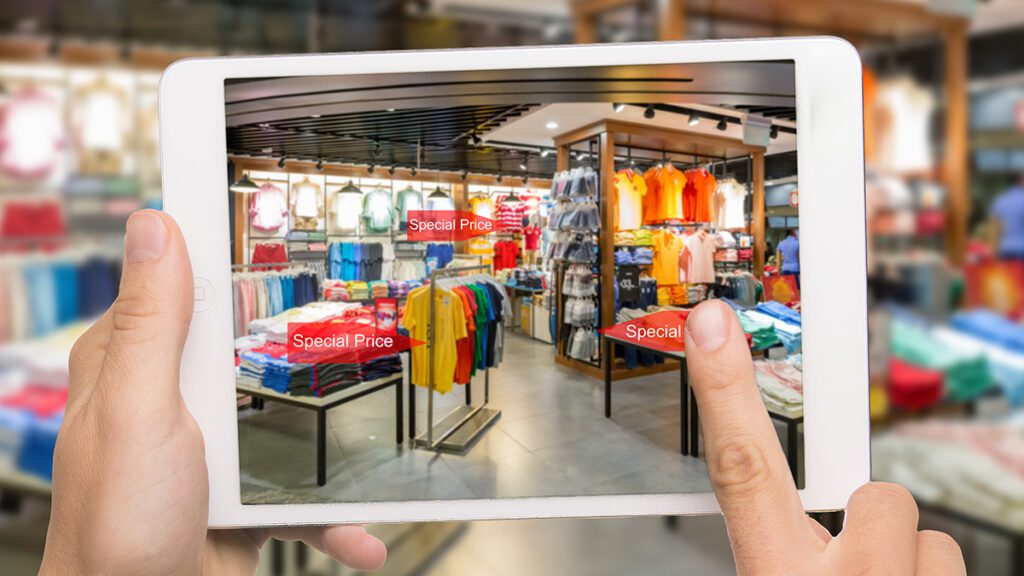The retail industry has always been at the forefront of technological innovation, constantly adapting to meet the evolving needs of consumers. As we step into 2024, retailers are poised for yet another transformative year, driven by cutting-edge technologies that promise to reshape the shopping experience.
From augmented reality (AR) to artificial intelligence (AI), here are the six most significant technology trends that will define the retail landscape in 2024:
Artificial intelligence (AI) and personalization
Artificial Intelligence (AI) continues to redefine the shopping experience. AI-driven algorithms analyze vast amounts of data, allowing for personalized product recommendations, targeted marketing campaigns, and tailored shopping experiences. Chatbots and virtual shopping assistants have evolved to understand customer preferences, offer product suggestions, and provide real-time assistance. AI enhances inventory management, optimizes supply chains, and forecasts demand, enabling retailers to stock the right products in the right quantities, reducing both overstock and out-of-stock issues. In 2024, AI will advance further, providing more personalized, efficient, and data-driven shopping experiences for consumers.
Omnichannel retailing and unified commerce
Omnichannel retailing remains one of the most significant trends in 2024. Customers now expect a seamless shopping experience across physical stores, websites, mobile apps, and social media. Unified commerce platforms are the key to achieving this goal. By integrating systems, including point-of-sale (POS), inventory management, customer relationship management (CRM), and e-commerce, retailers provide a unified view of the customer journey. In 2024, retailers will increasingly invest in unified commerce solutions to meet customer demands for a seamless shopping experience. The ability to purchase online and return in-store, receive personalized offers, and have a consistent experience across channels will be the norm.
Zero trust architectures
Retail is struggling against a dramatic increase in malware and ransomware attacks. Data indicates March 2023 surpassed prior ransomware attack records for the most incidents in one month, with nearly 460 attacks, a 91% increase month-over-month and 62% year-over-year. Exploited vulnerabilities (36%) were the most common root cause of ransomware attacks, followed by compromised credentials (29%).
Zero trust is a holistic security approach that provides the strongest possible defense, while ensuring that all identities can access the information needed, when it’s needed. A zero-trust framework ensures that identities are validated, and that access is managed dynamically. It centralizes policy management and automates enforcement, closing security gaps and making compliance and auditing much easier. Expect retail organizations to continue to accelerate their deployment of zero trust architectures to defend against increased attacks.
Sustainability and green technology
As environmental consciousness grows, retailers are embracing green technology to reduce their environmental impact and meet consumer demands for sustainability. In 2024, we will see a growing emphasis on eco-friendly solutions in the retail industry. Retailers are applying green technology to various aspects of their operations, including energy-efficient lighting, sustainable materials, and eco-friendly packaging. Supply chain optimization is also a focus, aimed at reducing carbon footprints and emissions. Transparency is key as consumers actively seek out brands that can provide verifiable information about the environmental impact of their products. Retailers who can meet this demand for sustainability will have a competitive edge.
IoT for supply chain transparency
IoT technology is gaining traction in the retail industry for its ability to enhance supply chain transparency. By recording every step of a product’s journey, retailers can verify the authenticity and origins of their products. This not only ensures product quality but also builds trust with consumers. In 2024, expect more retailers to adopt IoT technology to create transparent and secure supply chains, which can be particularly valuable for food safety, luxury goods, and products with a sustainability focus.
Augmented reality (AR) shopping
The integration of Augmented Reality (AR) into retail has steadily gained momentum, and 2024 is poised to be a breakthrough year for this technology. AR enriches the shopping experience by merging the physical and digital realms. Consumers can now virtually try on clothing, visualize how furniture fits into their homes, or preview products before making a purchase, enhancing engagement, and reducing returns. In 2024, AR will become a standard feature for leading retailers, ensuring more immersive and interactive experiences.
To succeed in the evolving retail environment, businesses must adapt and embrace these technologies, providing consumers with more personalized, efficient, and sustainable shopping experiences. The year 2024 represents a significant moment in the journey towards a tech-driven, customer-centric, and eco-conscious retail industry. Those who seize these opportunities stand to thrive in the ever-changing world of retail.
At OpenText, we will spend 2024 continuing to focus on meeting the supply chain, sustainability, AI and customer engagement requirements of our customers. Learn more about how OpenText solutions for consumer goods and retail industries can help you overcome your challenges.




